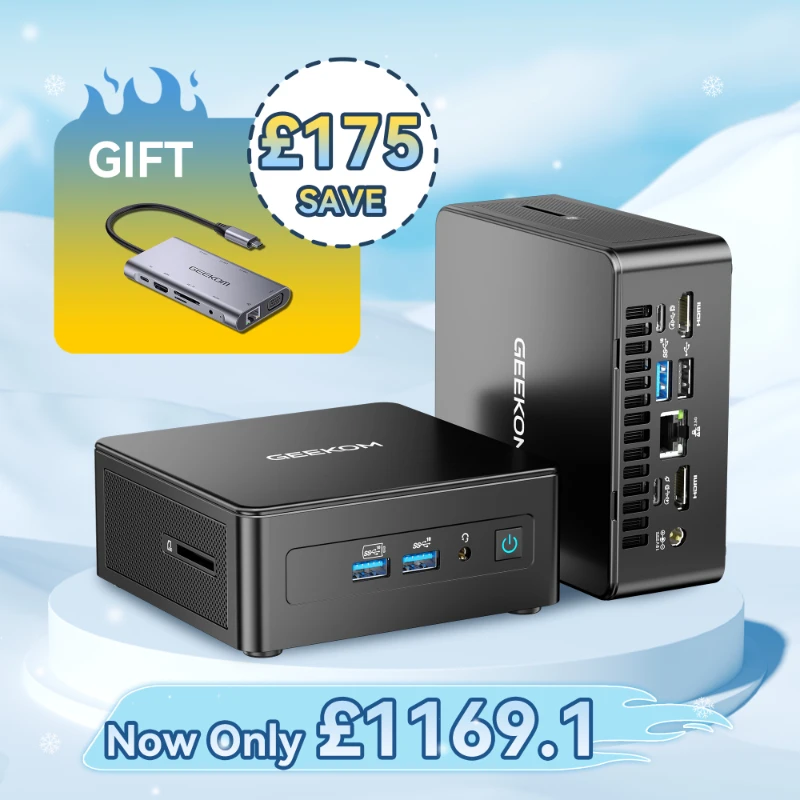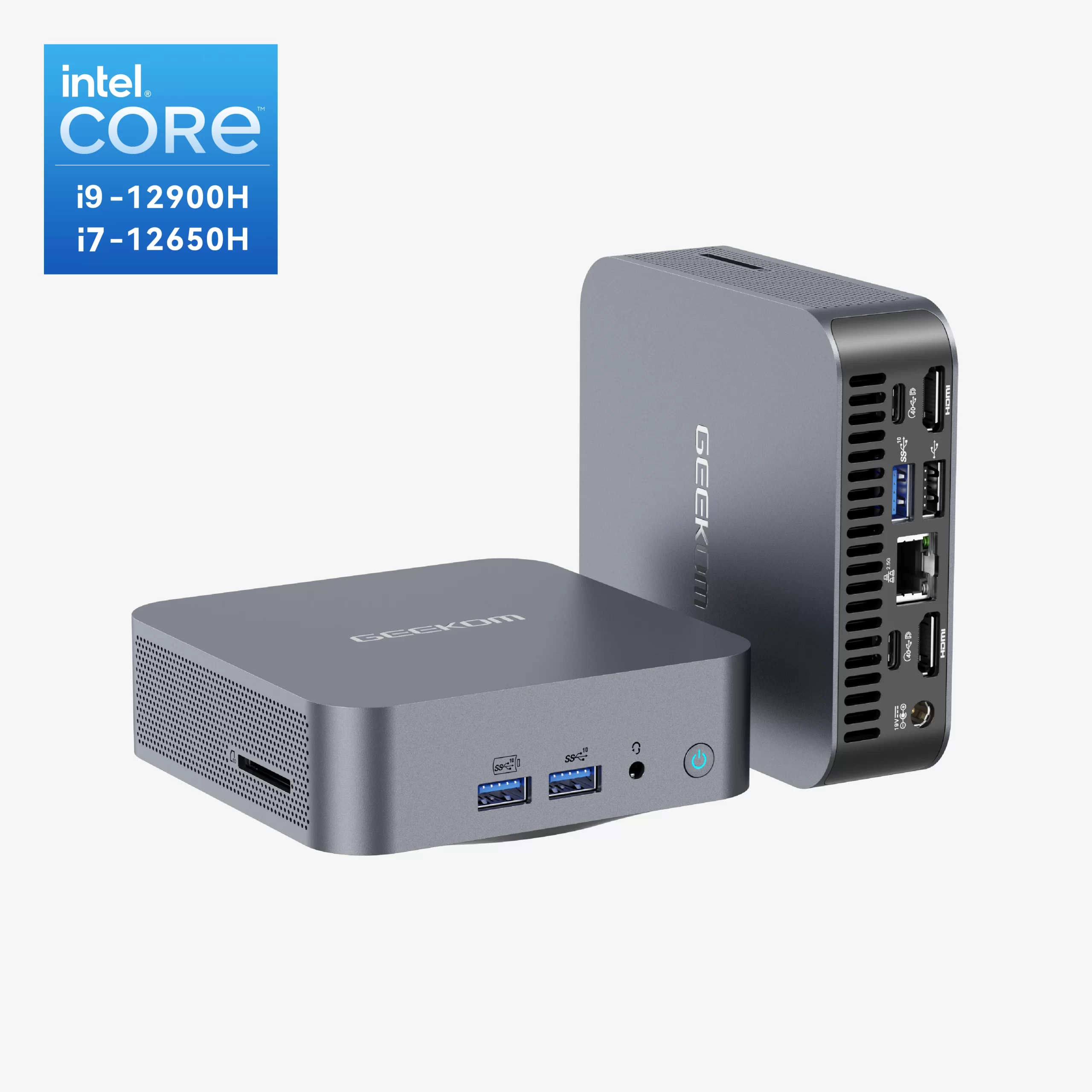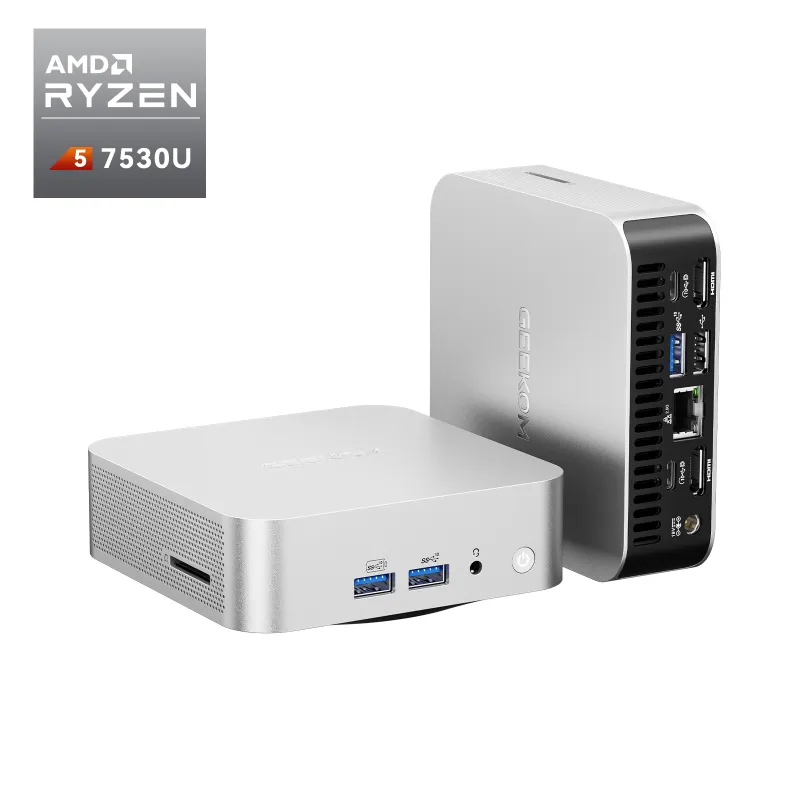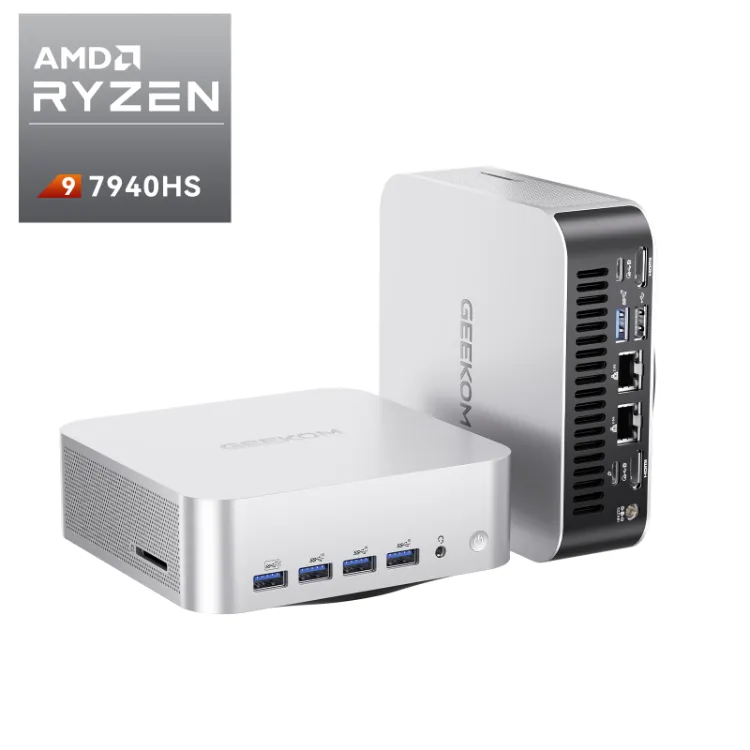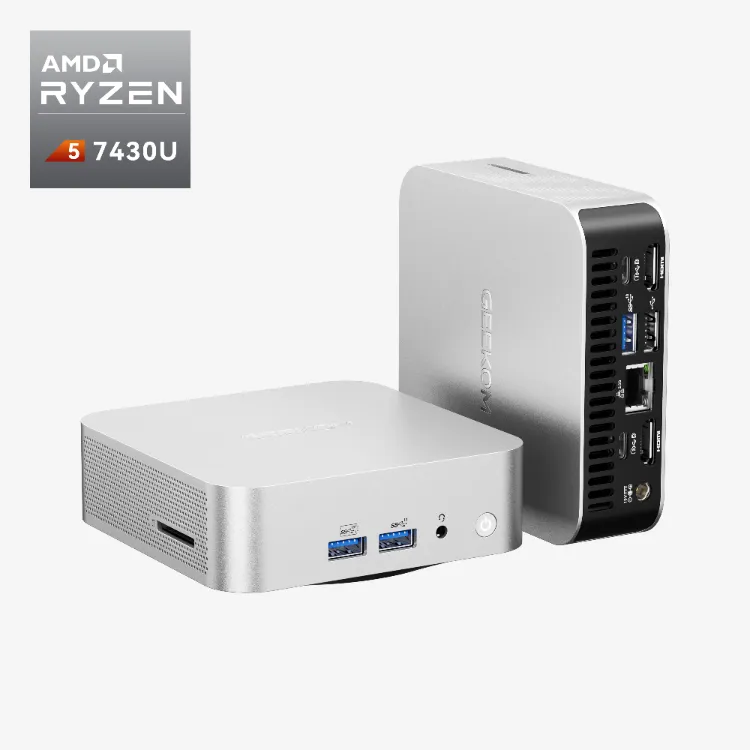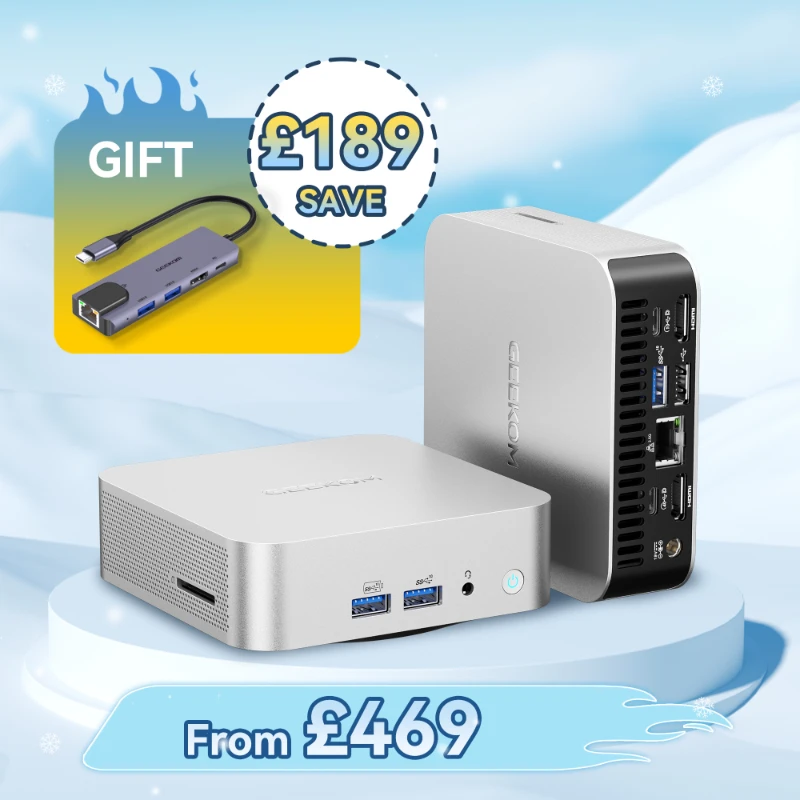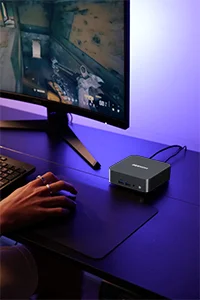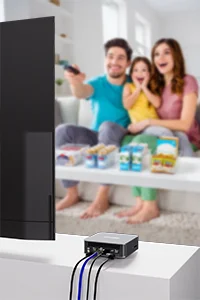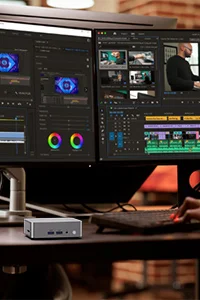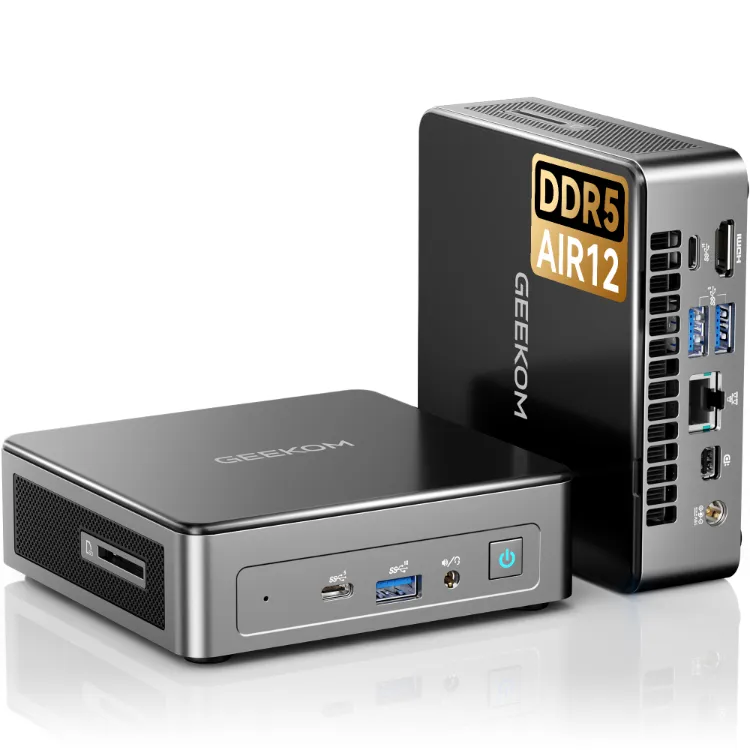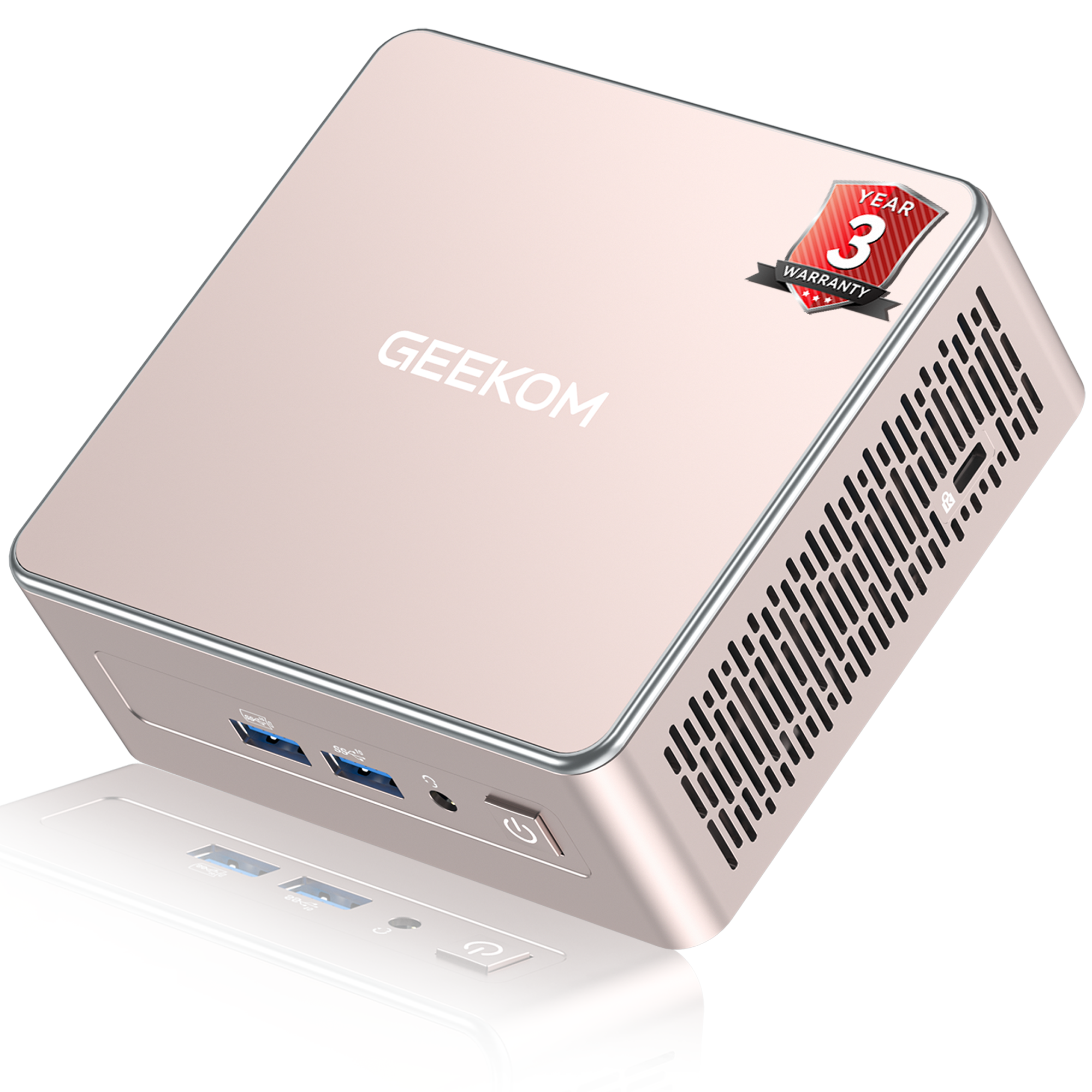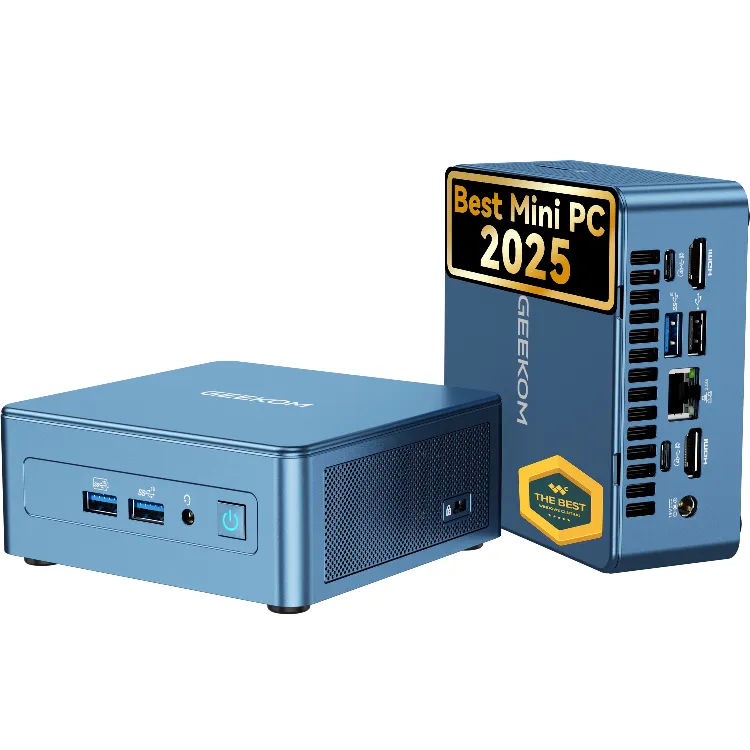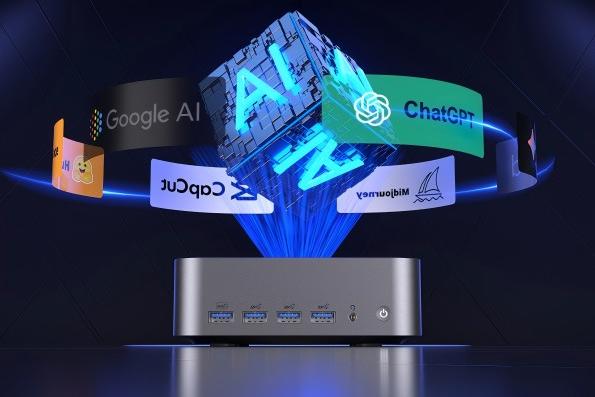Tiny PC Tech, Tremendous Teaching
Affordable, durable and customised for learning environments
Best Mini PCs for Education
Use Case
GEEKOM has been granted as Sri Lanka’s No.1 Mini Personal Computer, Donated To Support Digital Learning By Ceylon Business Applicances (Pvt) Ltd
Application Scenarios
Library
Computer Lab on Campus
Multimedia Classroom
Teacher’s Office

Mini PCs for Modern Library
Revolutionize your library’s digital ecosystem with mini PCs designed for educational excellence. GEEKOM compact computing solutions seamlessly integrate advanced technology into learning environments, empowering students and educators with instant access to a world of digital knowledge.
Engineered for maximum impact and minimal space consumption, these mini PCs deliver powerful performance in a ultra-compact form factor. Students can effortlessly explore comprehensive e-book collections, dive into extensive research databases, and engage with rich multimedia content—all through a silent, efficient computing platform that supports both individual study and collaborative learning initiatives.
Mini PCs for Campus Computer Labs
Elevate your campus technology infrastructure with GEEKOM mini PCs for the demanding requirements of modern educational environments. These compact powerhouses are designed to transform campus computer labs into efficient, reliable digital learning hubs that support comprehensive academic and research needs.
Featuring robust processors and expansive memory configurations, GEEKOM mini-computers deliver unparalleled performance across a wide spectrum of educational applications. From intensive research software to collaborative learning platforms, these devices ensure seamless, lag-free computing experiences for students and faculty alike.
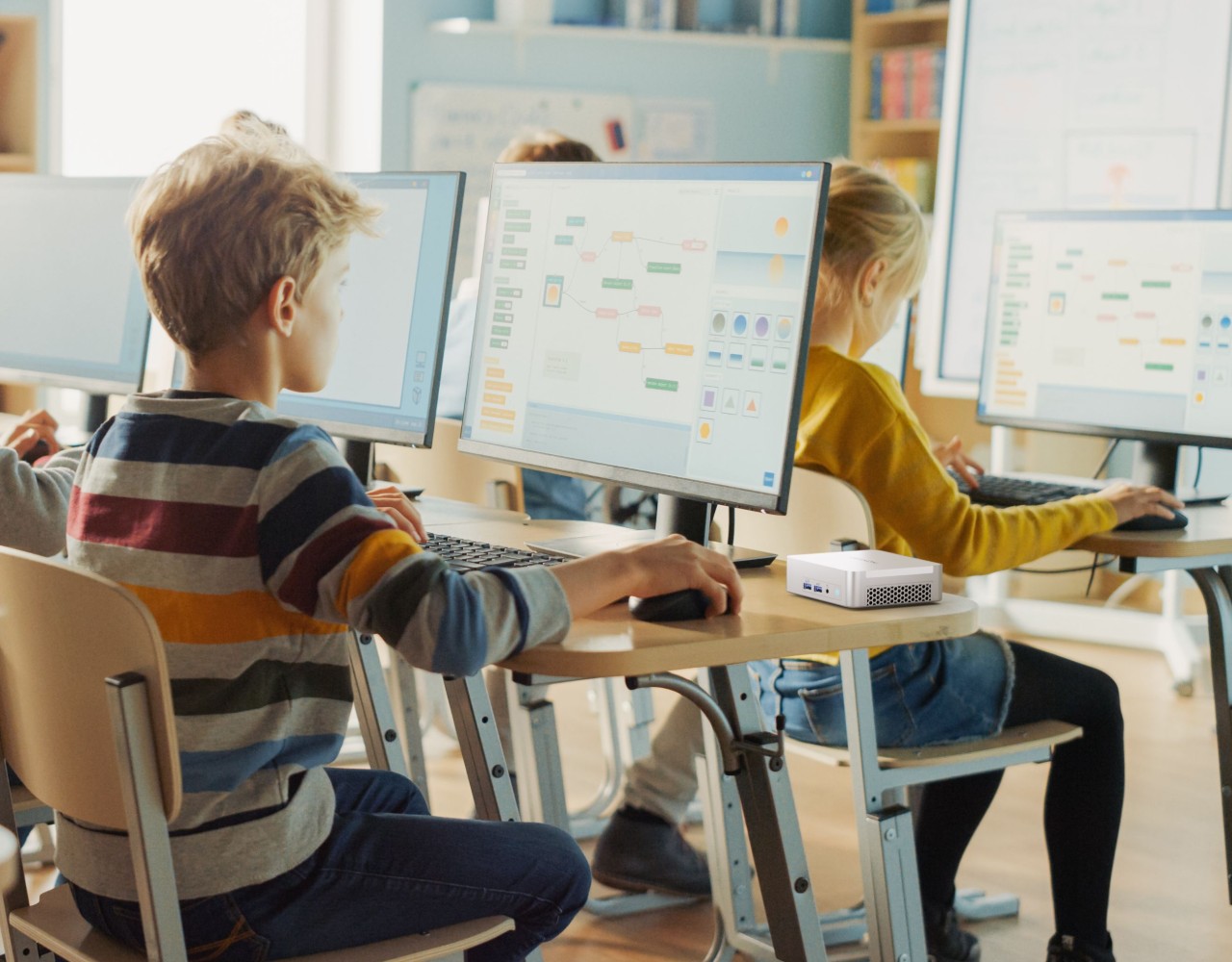

Mini PCs for Cutting-Edge Media Education
Transform your media classroom into a professional-grade content creation studio with GEEKOM tiny PCs. Designed to meet the rigorous demands of modern media education, these compact devices deliver professional-level performance in a space-saving design that revolutionizes multimedia learning.
Specifically designed for creative media instruction, GEEKOM mini PCs boast powerful graphics capabilities and high-end audio processing that empower students to push the boundaries of digital content creation. From video editing and graphic design to audio production and multimedia storytelling, these compact computers provide the technological foundation for comprehensive media arts education.
Mini PCs: Educators' Tech Companion
Revolutionize your teaching workspace with GEEKOM mini PCs, designed specifically to meet the multifaceted demands of modern educational professionals. These cutting-edge compact computers are engineered to streamline every aspect of a teacher’s daily workflow, from lesson preparation to administrative management.
Powered by state-of-the-art processors, GEEKOM mini computers deliver lightning-fast performance that transforms how educators manage their professional responsibilities. Whether you’re creating lesson plans, grading assignments, conducting research, or communicating with colleagues and students, these devices provide the computational power and flexibility needed to enhance educational productivity.

GEEKOM Mini-Computers:
Powering Education Across All Levels
Related Articles
FAQ
What type of computer is best to be used for educational purposes?
Educational computers should be equipped with an Intel Core i5 or equivalent AMD processor, at least 16 GB RAM for smooth performance, and 256 GB SSD for files or multimedia content storage. However, the best choices depend on the age of students, budget constraints, available physical space and the types of software and tasks needed.
Mini PCs are the best choice for education, as they are highly compact and space-saving. Green mini PCs consume less power. Tiny computers are suitable for libraries, classrooms, and small study spaces. You can easily mount them behind monitors.
What PC do schools use?
UK schools approach digital technology with a pragmatic strategy, emphasizing three critical factors:
1. Affordability: Cost-effective solutions that maximise educational value while maintaining strict budget constraints.
2. Durability: Robust computing devices capable of withstanding daily use in challenging educational environments.
3. Ease of Management: Technology platforms that allow straightforward IT administration and minimal technical intervention.
How can a computer be used for education?
Computers have emerged as pivotal, transformative tools in modern education, fundamentally reshaping how knowledge is acquired, shared, and experienced across global learning environments.
They enhance education across various levels and contexts: Interactive Learning Tools, Online Learning & MOOCs, Personalized Learning, Skill Development & Vocational Training, Research &Collaboration, Assistive Technology, Global & Lifelong Learning, Creative Expression, and Emerging Technologies.
Computers are not just tools but gateways to expanded learning opportunities, fostering creativity, critical thinking, and global connectivity.


